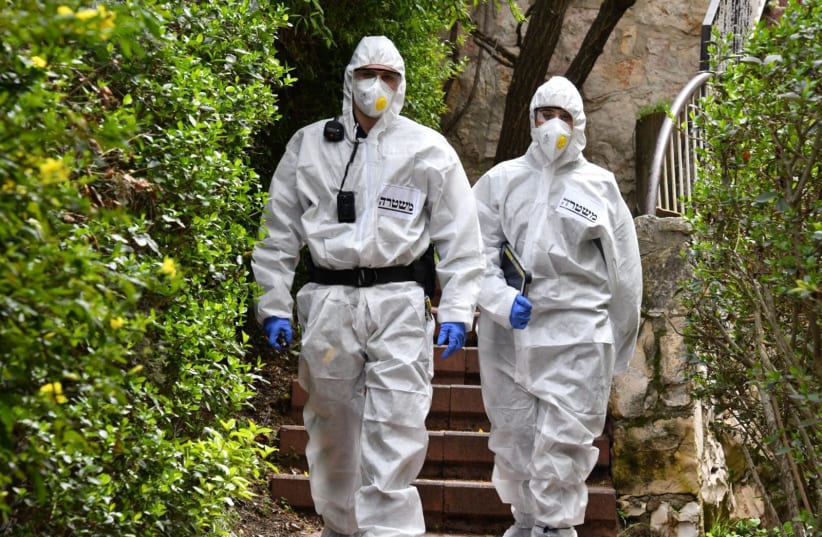The Police will be ready to keep Israelis in their homes if that is what the government and the Health Ministry decide, said Yishai Shalem, head of the operational department for the Israel police.
“It’s not so complicated,” he told The Jerusalem Post on Monday, the same day Prime Minister Benjamin Netanyahu sat in a seven-hour meeting with senior officials to determine what new guidelines might be required to help slow the spread of the novel coronavirus in Israel.
Shalem said that, “We have a state of emergency plan in place – and if there is a decision to do it, and we are required to move forward, we can and will.”
Earlier in the week, acting police chief Moti Cohen revealed some details of this state of emergency full-closure plan, saying that it would involve dividing the country into quadrants, each headed by a captain and team of police officers and soldiers, who would monitor borders and movement, and enforce quarantine.
Hundreds of police officers would be deployed to villages, towns and cities and stationed alongside IDF soldiers.
“We know how many officers we need near Jerusalem, between Jerusalem and Beit Shemesh and on the roads linking Ramle and Lod,” he continued. “There is a plan for every district.”
Shalem talked about barriers blocking city borders and stopping people on the street to ask them for their IDs and addresses, but he said this is only if the most extreme plans are rolled out. Then, only groceries and pharmacies would be open, and people could only go to them or be outside within a few meters from their homes.
He said that Israel Police have never seen anything like this before, but was basing its plans on what other countries have done in the past and now, including China, Italy, Germany and the United States.
“It’s not a military state” though, Shalem insisted. “We want the public to participate. If they act good, then we will not need to intervene.”
Already, the police have played a prominent role in enforcing quarantine and closure orders. On Monday, Police reported that so far, they have opened 135 investigations against individuals who broke quarantine and 21 against those who published fake news about the virus. Police also closed 32 businesses for not keeping to the regulations and dispersed 74 gatherings that were larger than 10 people, giving out fines to all of them.
Moreover, Police have checked 20,000 people to confirm that they are in quarantine.
Overnight, Police in Haifa arrested a man for causing damage to the newly opened Magen David Adom coronavirus testing complex. He had also stolen a computer from the center.
Shalem said that the police have been given access to enough data about Israeli citizens to “know how to check if people are in isolation. We know who came back from abroad and needs to be in isolation. We call them first to see if they are in isolation. If we don’t think so, we visit their homes.
“We know how to patrol the streets, check that businesses are closed and make sure that restaurants are only serving take-away,” he continued.
Shalem said that most of the Israeli public is following the orders of the Health Ministry, but admitted there are sectors who have been more recalcitrant. He did not want to clarify.
But if and when a total lockdown is implemented, he said that those sectors would be made to cooperate, too.
“This is really just to protect the public’s health,” Shalem said. “We are here for the safety of the public.”
